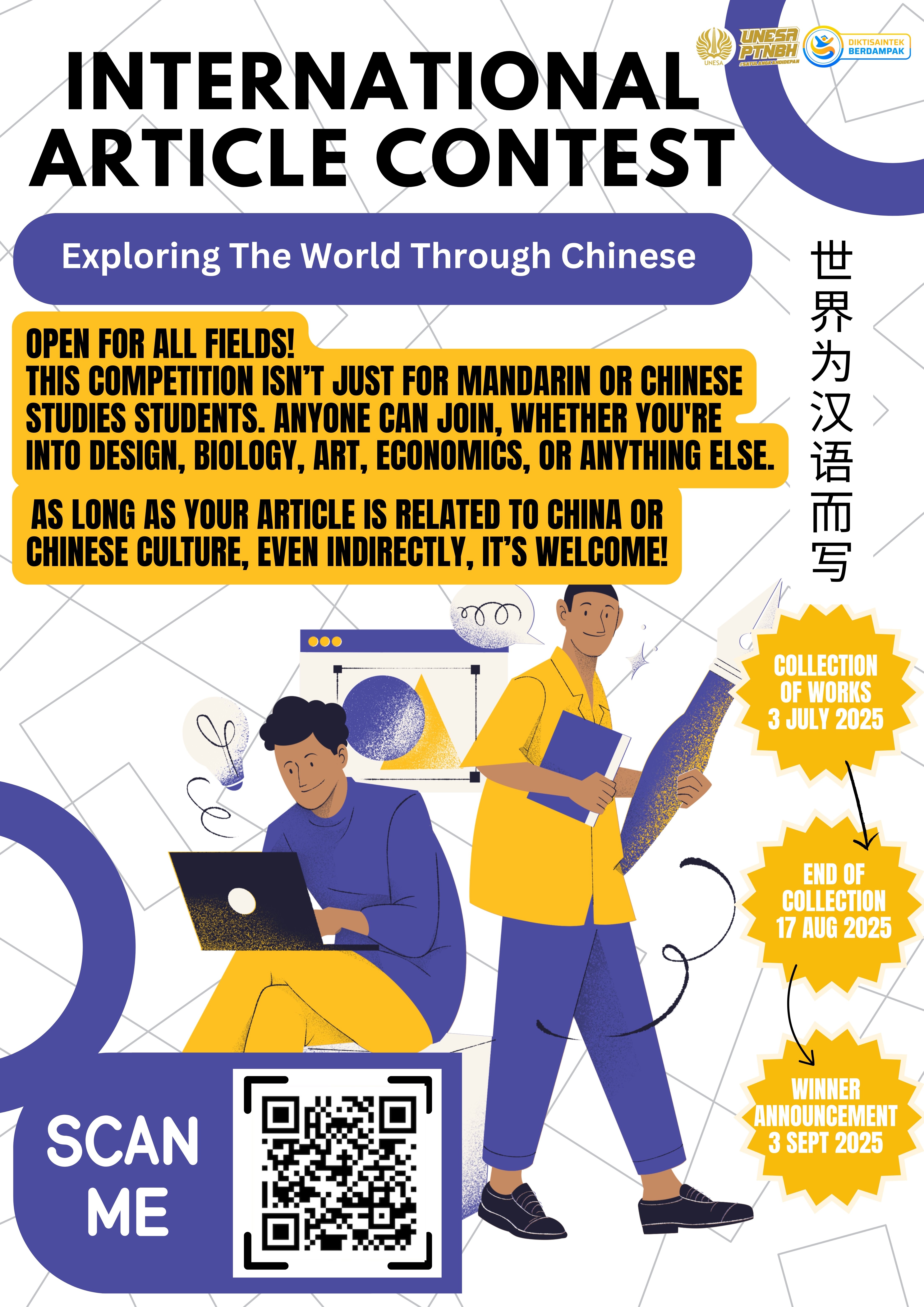English in China: Language, Identity, and the Ti–Yong Principle in an Era of Globalization
DOI:
https://doi.org/10.26740/ijcis.v3i1.45430Keywords:
Chinese Identity, English Education, Globalization, Ti-Yong Principle, Language PolicyAbstract
China’s relationship with English has long been shaped by history, globalization, and questions of identity. Once stigmatized as a symbol of Western aggression during the Opium Wars and unequal treaties, English later came to be justified through the ti–yong principle, Chinese learning for essence, Western learning for utility, which positioned it as a useful tool but not a cultural threat. Since the Reform and Opening-up of 1978, and especially after China’s accession to the WTO in 2001 and the Beijing Olympics in 2008, English has become central to modernization, education, and international participation. Yet this expansion has also intensified debates about cultural integrity and national selfhood. This study investigates perceptions of English among high school students, university students, teachers, and parents in Beijing, employing Q methodology supported by semi-structured interviews and critical discourse analysis. Four shared viewpoints were identified: English as modernization and global mobility, cultural protectionism anchored in ti–yong, pragmatic bilingual complementarity, and anxiety over cultural dilution. Findings suggest that while the ti–yong principle remains a powerful reference point, its interpretation varies from strict hierarchical separation of cultural essence and linguistic utility to more hybrid orientations that embrace translanguaging and the legitimacy of China English. The study contributes to applied linguistics and identity research by showing how English in China simultaneously functions as global capital and a contested cultural symbol, and it argues for policies and pedagogies that enable learners to engage internationally without compromising cultural authenticity.
References
Adamson, B. (2002). Barbarian As a Foreign Language: English in China’s schools. World Englishes, 21(2), 231–243. https://doi.org/10.1111/1467-971X.00244
Adamson, B. (2004). China’s English: A history of English in Chinese education. Hong Kong University Press.
Anderson, B. (1991). Imagined Communities: Reflections on The Origin and Spread Of Nationalism (Rev. ed.). Verso.
Arnett, J. J. (2002). The Psychology of Globalization. American Psychologist, 57(10), 774–783. https://doi.org/10.1037/0003-066X.57.10.774
Bell, D. (2008). China’s New Confucianism: Politics and Everyday Life in a Changing Society. Princeton University Press.
Brown, S. R. (1980). Political Subjectivity: Applications of Q Methodology in Political Science. Yale University Press.
Fairclough, N. (2003). Analyzing Discourse: Textual Analysis for Social Research. Routledge.
Graddol, D. (2006). English Next. British Council.
Hu, G. (2005). English Language Education in China: Policies, Progress, and Problems. Language Policy, 4(1), 5–24. https://doi.org/10.1007/s10993-004-6561-7
Jenkins, J. (2009). World Englishes: A Resource Book for Students (2nd ed.). Routledge.
Kachru, B. B. (1985). Standards, Codification and Sociolinguistic Realism: The English Language in The Outer Circle. In R. Quirk & H. Widdowson (Eds.), English in the world (pp. 11–30). Cambridge University Press.
Kirkpatrick, A. (2012). World Englishes: Implications for International Communication and English Language Teaching. Cambridge University Press.
McKeown, B., & Thomas, D. (2013). Q Methodology (2nd ed.). SAGE.
Norton, B. (2013). Identity and Language Learning: Extending the Conversation (2nd ed.). Multilingual Matters.
Watts, S., & Stenner, P. (2012). Doing Q Methodological Research: Theory, method and interpretation. SAGE.
Downloads
Published
How to Cite
Issue
Section
License
Copyright (c) 2025 International Journal of Chinese Interdisciplinary Studies

This work is licensed under a Creative Commons Attribution 4.0 International License.
 Abstract views: 91
,
Abstract views: 91
, PDF Downloads: 69
PDF Downloads: 69




